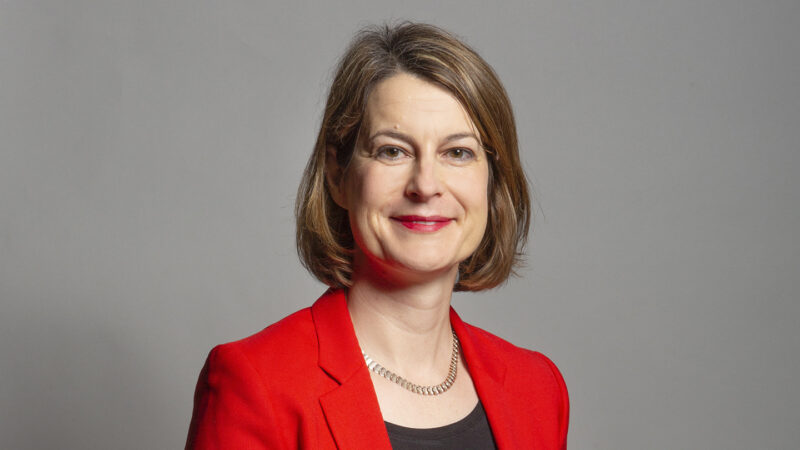
Late last year, I began to be contacted by residents in my constituency of Dulwich and West Norwood desperately concerned about the safety of family members in Ethiopia. These were people from Tigray, Ethiopia’s northern region and the stories they told of violence and killings, shortages of food and displacement were deeply disturbing. As I investigated this situation on their behalf, a further horrific feature of the conflict, which began in November 2020, emerged: reports of the widespread use of rape and sexual violence primarily against Tigrayan women and girls. Six months on from the start of this conflict, it has now been reported that there are as many as 26,000 women in need of medical attention due to rape or sexual assault, many with appalling physical injuries.
Sexual violence as a weapon of war is not new, it is one of the oldest methods of systematic oppression and subjugation in conflict and it is a feature of genocide. Legal frameworks began to proscribe rape in the 18th and 19th centuries and the 1929 Geneva Convention provided in article three that: “Prisoners of war have the right to have their person and their honour respected. Women shall be treated with all the regard due to their sex.” In 2015, the UN General Assembly proclaimed June 19th each year as the International Day for the Elimination of Sexual Violence in Conflict, a day to condemn and call for the end of conflict-related sexual violence, including rape, sexual slavery, enforced prostitution, forced pregnancy and enforced sterilisation and so-called ‘honour crimes’, and to support victims, survivors and those fighting to end these most terrorising and destructive of crimes.
As we mark the International Day for the Elimination of Sexual Violence in Conflict 2021, we must acknowledge that international treaties have not been enforced or upheld and tools of war that were common in the middle ages are being used on women and girls in Tigray today. Conflict-related sexual violence is an act that can constitute a war crime and when committed with the intent to destroy wholly or in part a group of people, genocide. Its perpetuation is enabled by attitudes that normalise violence towards women and girls; by legal frameworks that do not hold perpetrators to account; by a failure to respond to the needs of survivors by humanitarian actors; and by the ongoing stigmatisation of survivors.
We will never know the true number of women who have been affected by sexual violence in Tigray, but reports have increased from 10,000 earlier this year to current reports of more than 26,000. The numbers alone do not explain the horror and suffering of these women. The Ethiopian army, Amhara special forces and the Eritrean army are all alleged to be perpetrators – the most horrific stories of gang rape and torture are associated with the Eritrean army.
Aid workers report stories of survivors facing multiple atrocities; each of which may on its own amount to a war crime including sexual violence, mutilation (sometimes by hot irons), cruel treatment and torture, outrages upon personal dignity, humiliating and degrading treatment, taking of hostages. Women have been repeatedly raped while held captive in their homes or in military camps. Families have been forced to commit or watch acts of rape. Children have been raped.
Their injuries mean that women and girls continue to bleed; can no longer control bladder or bowel movements; some have suffered uterine prolapse. They are hidden in homes, safe houses and internally displaced people camps unable to access medical care. Across Tigray, water infrastructure has been destroyed; water shortages mean that women cannot clean their wounds; manage their menstruation; clean their clothes or bodies.
Despite the global outrage and condemnation, the sexual violence in Tigray is continuing and women who have come forward and the thousands suffering in silence, hidden in homes, safe houses and remote locations across the region, are not getting the psycho-social counselling, medical care and livelihood support they need right now.
We need changes to the framework of prioritisation for emergency aid in conflict situations. Humanitarian responses prioritise ‘lifesaving’ interventions such as food, water and shelter. In a context such as Tigray, responding to sexual violence should be considered a lifesaving intervention and include access to medical care to treat physical wounds and infections, psychological care and prevention of unsafe abortions, provided by organisations specialising in support for victims and survivors of sexual violence. It must also be a priority for nongovernmental organisations to recruit female case workers so that support is accessible and approachable, and women are not retraumatised in accessing help.
I have been calling urgently for the UK government to table a UN resolution on the use of rape and sexual violence in the conflict in Tigray to coincide with the International Day for the Elimination of Sexual Violence in Conflict today. The UK government should be leading the way both in terms of international condemnation and international support for the victims. But the situation in Tigray exposes both the utter heartlessness and recklessness of the Tories’ decision to cut international development funding this year, and the loss of authority and leadership that comes with such a disastrous decision.
Our condemnation of the use of sexual violence in conflict rings hollow if we are at the same time turning our backs on a generation of women and girls in Tigray whose lives are being devastated and who so desperately need our help. The Tories’ disastrous retreat from the international stage betrays both these women and girls and any sense of a modern Global Britain. Labour’s commitment to restore 0.7% for international development and play the fullest possible role in providing humanitarian aid in response to conflict could not be more important.




More from LabourList
‘The High Court judgment brings more uncertainty for the trans community’
‘There are good and bad businesses. Labour needs to be able to explain the difference’
‘This ruling should now remove any remaining barrier to approval of EHRC code’